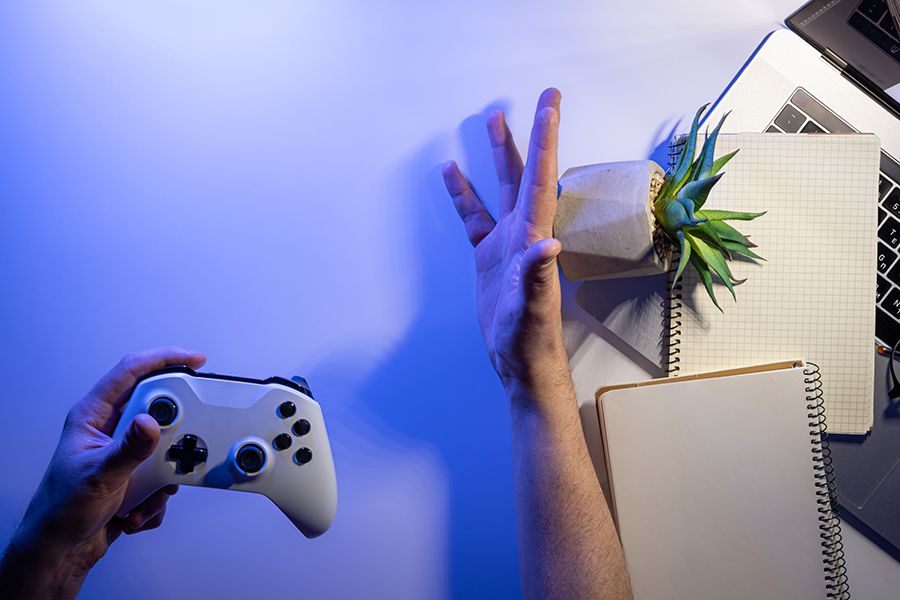The success of gaming apps depends on delivering a captivating and personalized user experience. Gaming app developers are turning to innovative solutions to engage their audience and drive growth with the advent of technology. Marketing automation is one of the solutions that has revolutionized the gaming industry. This article will show you how marketing automation can enhance gaming apps, revolutionize player engagement, and make gaming more fun.
Gaming apps can use marketing automation to optimize their marketing efforts, enhance player experiences, and retain players with its powerful tools and capabilities. With automation, gaming apps can deliver personalized experiences, tailor in-game offers, and streamline communication with players. Marketing automation allows gaming apps to create seamless and immersive gaming experiences from onboarding and tutorials, to in-game rewards, promotions, and re-engagement campaigns.
We’ll look at how marketing automation enhances gaming apps in this article. We’ll look at real-life examples of how leading gaming apps utilize automation to improve user onboarding, deliver personalized offers, foster player engagement, and implement retention strategies. Further, we’ll talk about the benefits of marketing automation in the gaming industry, like increased player satisfaction, enhanced monetization, and improved player retention.
User Onboarding and Tutorials
Marketing automation boosts user onboarding in gaming apps. Getting users familiar with the game mechanics, controls, and objectives is essential when they download a new game. With marketing automation, gaming apps can automate onboarding tutorials, interactive guides, and tooltips that help new users get started.
Example
A mobile puzzle game utilizes marketing automation to enhance user onboarding. In the game, when a new player installs it, an automated onboarding sequence guides them through basic gameplay mechanics, introduces various features, and provides interactive tutorials. As the player progresses, the automated onboarding process introduces new elements and challenges, ensuring a smooth learning curve. Providing a seamless and engaging introduction to the game enhances user retention and satisfaction.
In-Game Rewards and Achievements
By automating marketing, gaming apps can offer rewards and achievements that motivate and incentivize players. As players reach milestones, complete challenges, or demonstrate exceptional performance, gaming apps can automatically trigger in-game rewards, badges, or achievements. Players feel accomplished and are motivated to keep playing, exploring new levels, and engaging with the game.
Example
An adventure role-playing game uses marketing automation to reward players. Whenever a player defeats challenging enemies or completes quests, the app’s automatic system recognizes their accomplishments and rewards them with virtual currency, exclusive items, or character upgrades. Furthermore, the app displays achievements and badges within the player’s profile, showcasing their progress and highlighting their accomplishments. By providing a sense of progression and recognition, this automation boosts player engagement, satisfaction, and retention.
Personalized In-Game Offers and Promotions
In-game offers and promotions can be personalized with marketing automation. By leveraging player data, such as preferences, gameplay behavior, and purchase history, gaming apps can automate the delivery of targeted offers and promotions. Personalized offers can include discounts on in-game purchases, exclusive content, or time-limited bonuses to entice players to make more purchases.
Example
A multiplayer online battle arena game uses marketing automation to deliver personalized offers. The app’s automation system analyzes player data like character classes, playstyles, and previous purchases. As a result of this data, the app sends automated notifications or displays targeted offers within the game, such as discounts on character skins or exclusive weapons. Personalized experiences increase engagement and encourage in-game purchases for players.

Re-Engagement and Retention Campaigns
Using marketing automation, gaming apps can re-engage and retain inactive or lapsed players. By analyzing player behavior and identifying patterns of disengagement, gaming apps can send targeted messages or incentives to re-engage players. It can be personalized offers, bonuses for logging in after a period of inactivity, or exclusive events.
Example
A mobile strategy game employs marketing automation to launch re-engagement and retention campaigns. When a player has been inactive for a certain period, the app’s automation system triggers automated push notifications or emails, reminding the player of their progress, offering in-game rewards for logging back in, and telling them about exclusive events. By automating this, you rekindle players’ interest, get them to revisit the game, and keep them coming back.
Social Sharing and Referral Programs
With marketing automation, gaming apps can leverage social sharing and referral programs to grow their player base and get more engagement. Through automated sharing features, players can share their achievements, high scores, or in-game content on social media platforms, promoting the game to their friends. Also, gaming apps can automate referral programs that reward players for referring friends to the game, providing rewards or bonuses for successful referrals.
Example
A mobile casual game uses marketing automation to encourage social sharing and referrals. The game prompts players to share their high scores or notable achievements on social media. Sharing actions are automatically recognized by the app’s automation system, and players get in-game bonuses or exclusive content. The app also has a referral program where players can invite their friends to play. Through the referral link, when a friend installs and starts playing the game, both the referrer and the new player get special rewards. Viral growth, player engagement, and community expansion are all boosted by this automation.
Through social sharing and referral programs, gaming apps can drive player engagement. Automation makes sharing achievements easy, incentivizes players to invite their friends, and creates a sense of community. The automation-driven initiatives help grow the player base organically and make gaming more social.
Usermost
Gaming apps can greatly benefit from Usermost’s comprehensive suite of features and functionalities. With Usermost, gaming apps can enhance player engagement, deliver personalized experiences, and optimize marketing. With Usermost, gaming apps can segment their players for targeted, personalized messages, offers, and promotions. Usermost streamlines the onboarding process for new players, ensuring a smooth start. Additionally, the platform triggers rewards and recognition for player milestones and accomplishments automatically. Additionally, Usermost lets gaming apps run re-engagement and retention campaigns to entice inactive players back into the game. Usermost helps gaming apps leverage data-driven insights, automate communication, and enhance player experiences, fostering long-term engagement and loyalty.
